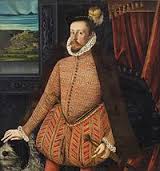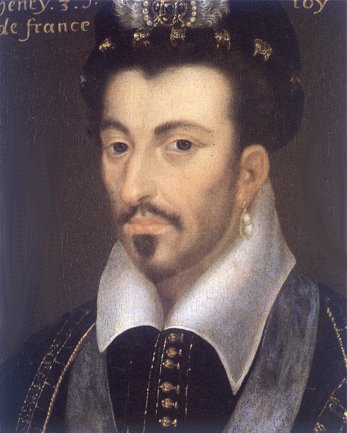William Cecil: Life Story
Elizabeth I’s Chief Councillor
Chapter 10 : Marriage Negotiations
The only cure for the succession problem, in Cecil’s eyes, was marriage for Elizabeth. Throughout the 1560s and 1570s, he continued to press her to choose a husband. Her first suitor had been Philip of Spain, widower of Queen Mary, but he soon gave up pursuit, marrying Elisabeth de Valois as part of the Treaty of Cateau-Cambresis. Although Cecil would have disliked his Catholicism, he was, at least a known quantity.
Then there was Philip’s cousin (and nephew), the Archduke Charles, son of Emperor Ferdinand I. Archduke Charles, also being touted for Mary, Queen of Scots, was the front-runner in the period 1564 – 1568 (early negotiations in 1560 having collapsed). Whilst he was Catholic, the Imperial Hapsburgs were more emollient on religious matters than the Spanish branch of the family and Cecil re-opened negotiations in 1565. The Austrians, however, were wary, after the previous failure.

There was another Charles in the frame, too. Charles IX of France was promoted by his mother, the Queen Regent, Catherine de Medici. His age (he was only fourteen) was rather a drawback, as Elizabeth was now thirty. He was also described as ‘pale and not greatly timbered (skinny)’. She firmly rejected the unappealing prospect of marriage to a teenager, and decided that the Archduke was her favourite choice. She had heard how happy the Archduke Charles’ parents had been, and was confident he would be a loving husband. She could not, however, marry him sight unseen – would he visit her?
At this point, the Imperial Ambassador began to smell a rat, and wrote home that:
‘She was determined not to marry and therefore found none who pleased her…’
Meanwhile, Mary of Scotland had married Lord Darnley, to the consternation of all of Elizabeth’s advisors – the merging of their two claims to the English Crown, and the likelihood that Mary would have a child, seemed to increase the threat to their unmarried queen. Elizabeth, overcome by stress, gave way to an emotional outburst, screaming at Cecil, Dudley and others that their pressure on her to marry would ruin her.
Cecil reassured her that they were her loyal subjects, and would never try to force her against her will, but, regardless of his gentle words, the pressure continued, with further petitions from Parliament.
In 1567, the match with Archduke Charles was finally abandoned when a religious compromise in which he would be permitted to hear Mass in private, provided he also attended the Protestant service with the Queen, did not garner sufficient support in the Privy Council.
By 1570, it appeared that Elizabeth was regretting her failure to marry and secure an heir. In that year, following the Rising of the Northern Earls, in support of Mary, Queen of Scots’ succession to the throne, the Pope had finally excommunicated Elizabeth and released Catholics from their duty of obedience to their monarch. In the face of this massively increased threat to her security, Elizabeth needed allies and told the French Ambassador that she intended to marry, not because she wanted to, but to satisfy her subjects. Even Cecil was convinced by her change of heart, writing:
‘If I be not much deceived, her Majesty is earnest in this.’

She turned to France for a possible mate. Having rejected Charles IX on the score of the disparity in their ages, she now looked to his younger brother, Henri, even younger, and rumoured throughout Europe to be bisexual (although that term was not used). Initially, Henri was unenthusiastic, and made extremely ungallant remarks about his intended bride, but was talked round by his mother, Catherine de Medici.
His religion, however, was the bugbear. Again, an arrangement whereby he could hear Mass privately, if he accompanied Elizabeth to chapel, was mooted. Cecil, although he hated Catholics, and the French in equal measure, wrote to Sir Francis Walsingham, English Ambassador in Paris that:
‘I see the imminent perils to this state… that I cannot but persist in seeking marriage for her Majesty.’
But it was not to be. Elizabeth still dithered, and Henri soon reverted to his original refusal.
The final contender for Elizabeth’s hand, and the man whom she perhaps might have married, was the younger brother of Charles IX and Henri. This was Francois, Duke of Anjou. Although Catholic, he had been instrumental in achieving tolerance for the Huguenots in France, so might be persuadable on religious matters.

He had also been active in the Low Countries on the side of the rebels against Spain, which would play well with those of Elizabeth’s advisors, including Cecil, who wanted her to intervene there. If Anjou could lead troops there on behalf of England, rather than France, that would be a great strategic advantage. Cecil, together with the Earl of Sussex supported the match, whilst Dudley (now Earl of Leicester) and Walsingham opposed it.
Negotiations continued, and Anjou sent his envoy, Jean de Simier, to England to woo Elizabeth on his behalf, with a level of success that horrified the opponents of the match, particularly Leicester. Eventually, Anjou even came himself, and he and Elizabeth became surprisingly close.
After all the urging to Elizabeth to marry that had been going on for twenty years, when it looked as though she was finally about to take the plunge, her advisers and the public began to back-track.
Cecil wrote one of his lists of pros and cons – in favour was the fact that, despite being forty-five, Elizabeth was in good health, and would still be able to bear a child. Against the proposition, he noted that she ‘ misliked’ the idea of marriage.
A tract criticising the marriage, snappily called ‘The Discovery of a Gaping Gulf wherein England is like to be swallowed by another French marriage if the Lord forbid not the banns by letting Her Majesty see the sin and punishment thereof’ was circulated in the streets of London. The Privy Council rounded up as many copies as they could but Elizabeth was incandescent at this public criticism of a foreign prince, a guest in her realm and her potential husband. The author, a Puritan by the name of John Stubbs, was sentenced to lose his hand. The expected reprieve was not forthcoming, and the brutal punishment was carried out.
Elizabeth however, was not blind or deaf to the dissension within her Council, and, although negotiations carried on until 1581, this domestic uncertainty, together with her innate reluctance to marry, led her to call the negotiations to a halt. In order to keep some of the advantages of the match, she lent Anjou money for campaigning in the Low Countries.
Once the match with Anjou had been broken off, it was clear to everyone that Elizabeth would never marry.








